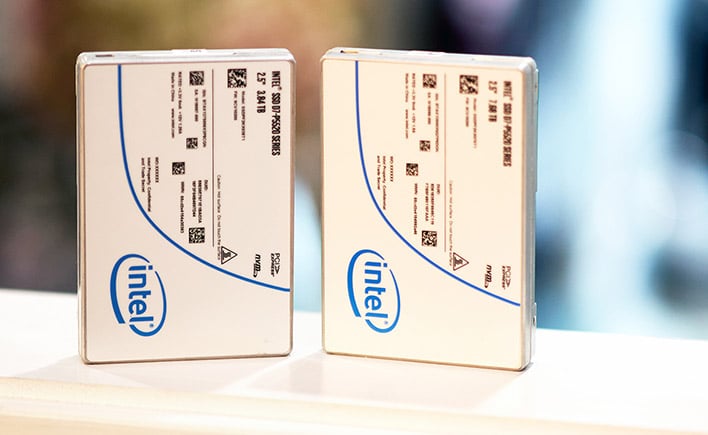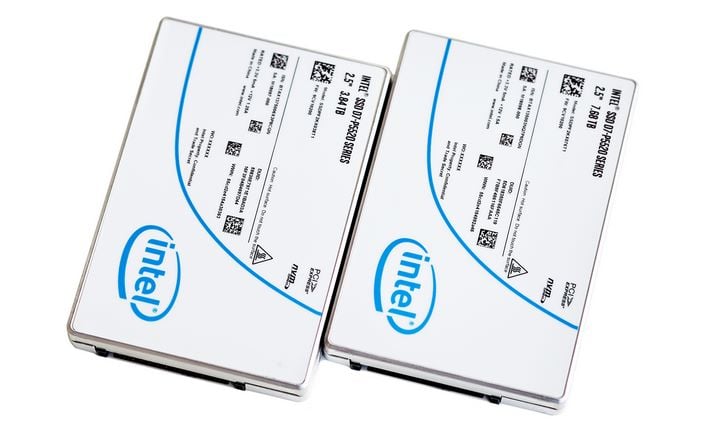Solidigm SSD D7-P5520 Review: Big, Fast NVMe Cloud Storage
Solidigm SSD D7-P5520 Review: Additional Benchmarks And Our Verdict
EFD Software's HD Tune is described on the company's website thusly: "HD Tune is a hard disk utility with many functions. It can be used to measure the drive's performance, scan for errors, check the health status (S.M.A.R.T.), securely erase all data and much more." The latest version of the benchmark added temperature statistics and improved support for SSDs, among a few other updates and fixes.
HD Tune Pro v5.75: Bandwidth & Latency
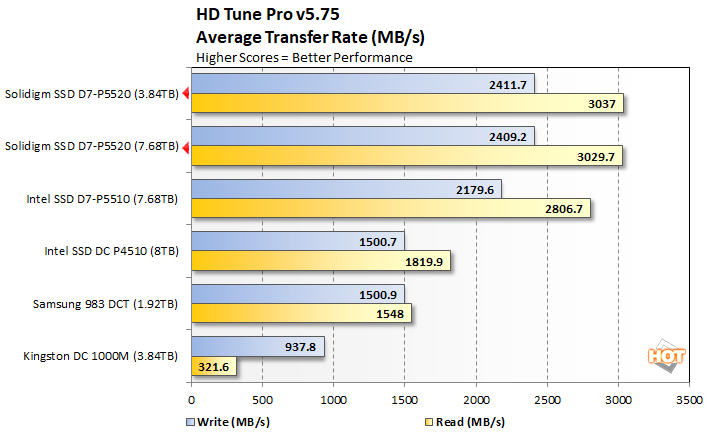
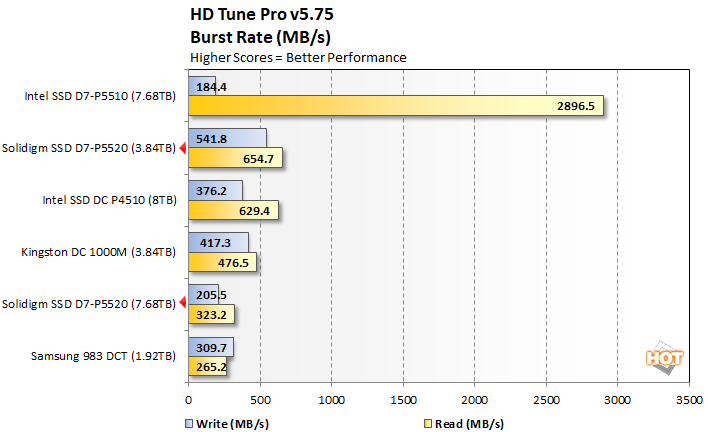
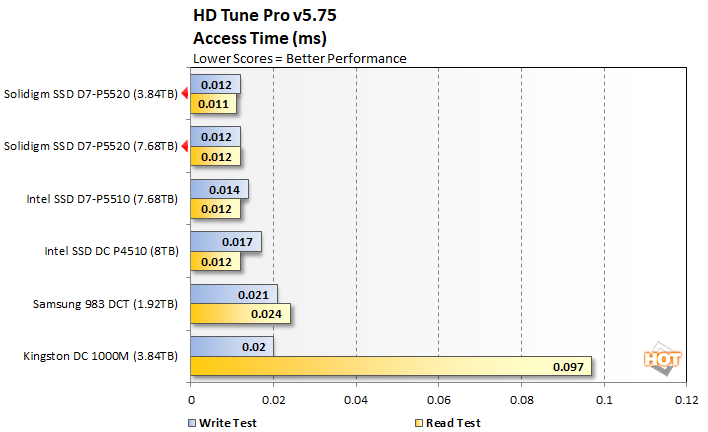
The Solidigm SSD D7-P5520 drives offered the highest throughput and tied for the lowest latencies here. They were competitive in the burst tests as well, save for the D7-P5510 which put up a significantly higher score.
CrystalDiskMark Storage Tests
CrystalDiskMark is a synthetic benchmark that tests both sequential and random small and mid-sized file transfers using incompressible data. It provides a quick look at best and worst case scenarios with regard to SSD performance, best case being larger sequential transfers and worse case being small, random transfers.
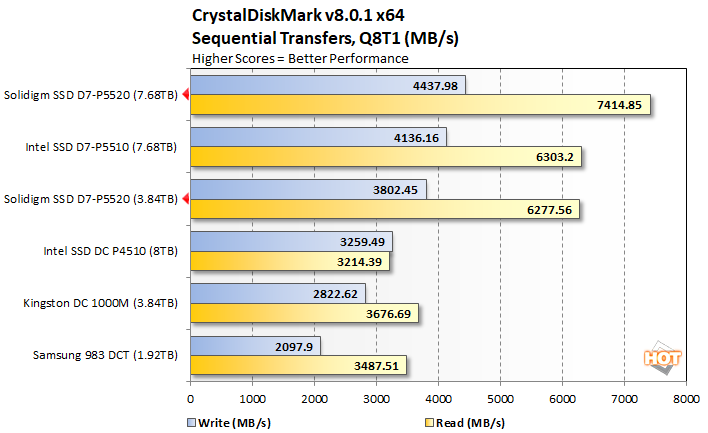
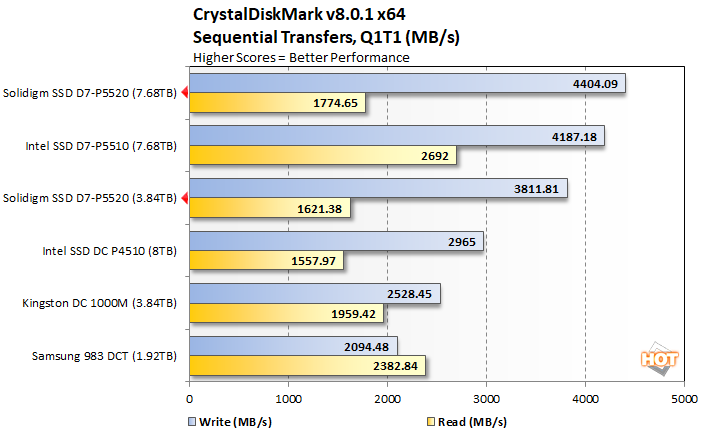
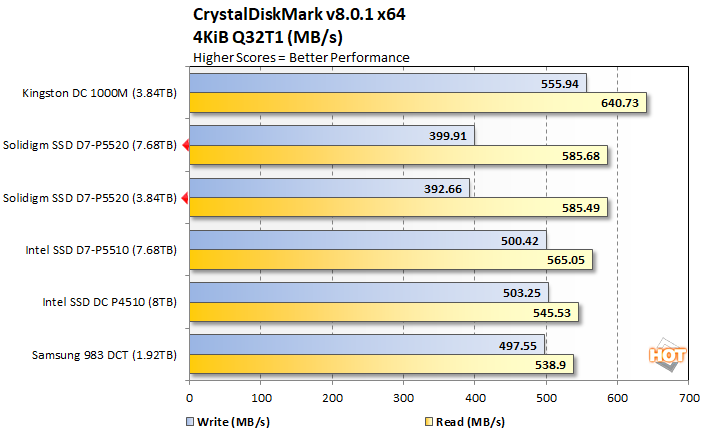
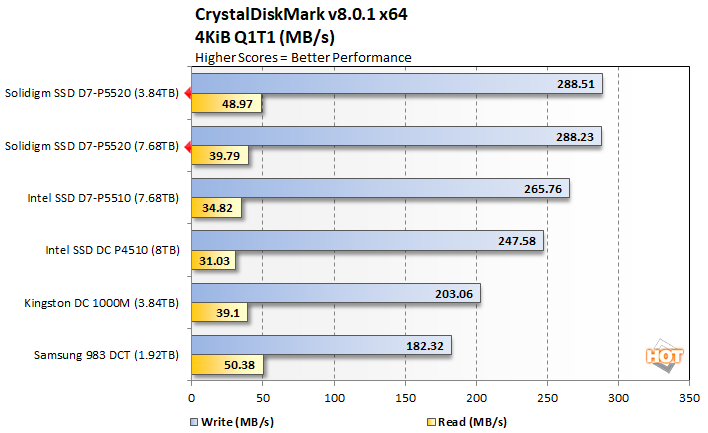
Latency Under Load
For this next set of tests, we measured access latency at various queue depths with the same fully random IOmeter 4K access pattern (67% reads, 33% writes) featured previously, but while each of the drives was also under a sustained sequential write workload. A sustained sequential write across the entire volume was initiated, and when performance plateaued, access latency was measured with IOMeter using the 4K fully random access pattern.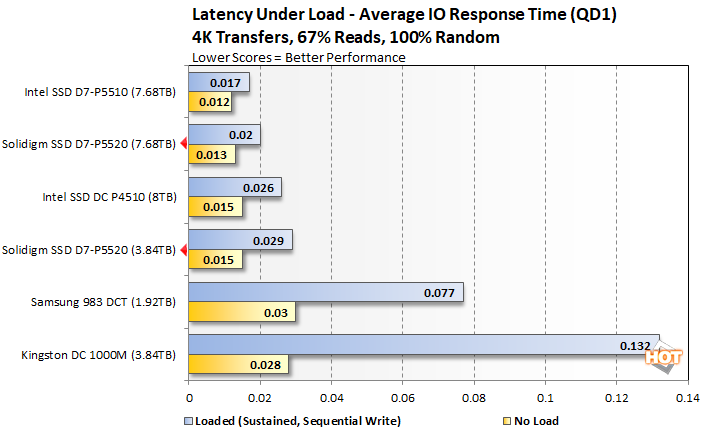
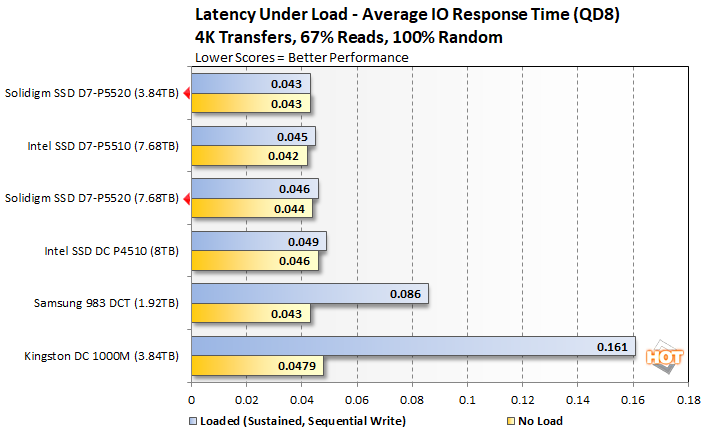
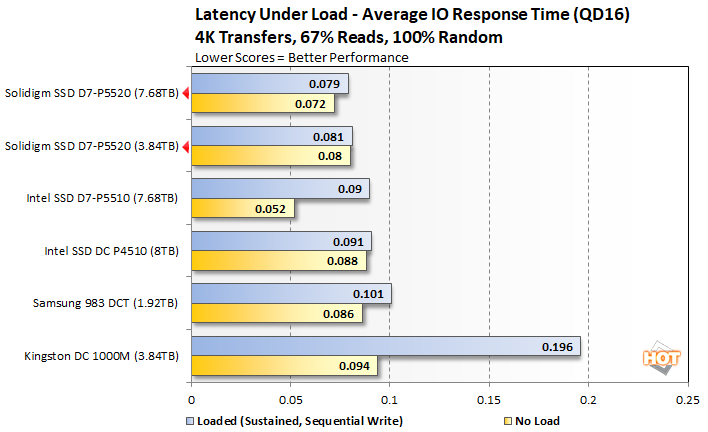
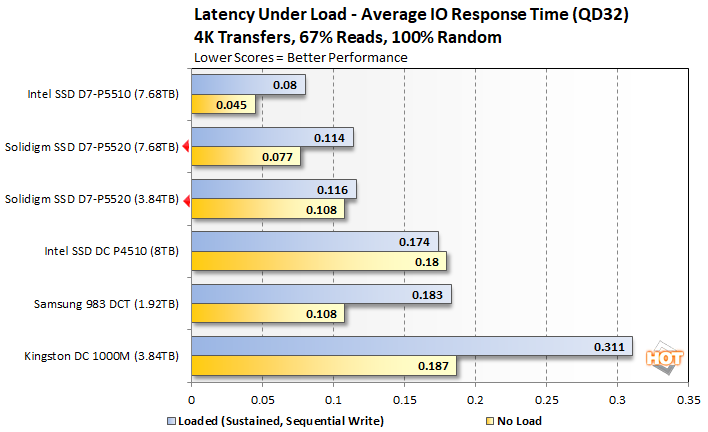
While under load, the Solidigm SSD D7-P5520 hardly blinked and maintained similarly, only slightly higher latency. The Intel D7-P5510 ultimately has a slight edge, but the consistency of the Solidigm SSD D7-P5520's latency performance remained consistent here.
Solidigm SSD D7-P5520 Summary And Conclusion:
Solidigm set out to offer leading-edge, native PCIe Gen 4 SSDs, with class-leading real-world performance across a variety of workloads, with the new D7-P5520 of drives. In our testing the company delivered just that. The 7.68TB Solidigm SSD D7-P5520 was one of the highest performing solid state drives we tested, especially in terms of reads and when places under higher loads.Considering their strong performance and competitive endurance ratings with other drives in this class, the Solidigm's SSD D7-P5520 series is easy to recommend (higher endurance P5620 series drives are also coming down the pipe). The Solidigm SSD D7-P5520 offers strong overall performance in a variety of high demand workloads, with leading-edge features, a solid warranty, and what we expect to be competitive prices. We look forward to seeing what this new but seasoned storage competitor is cooking up next.

|
|

